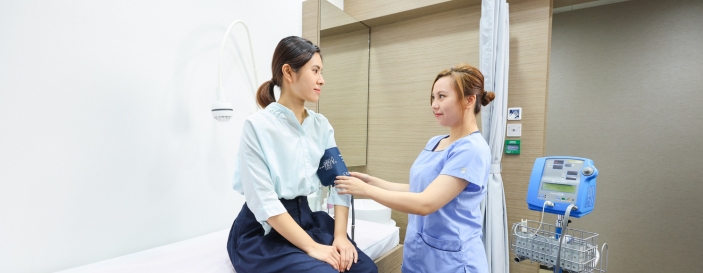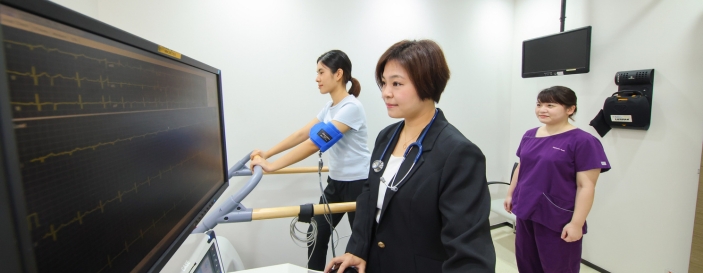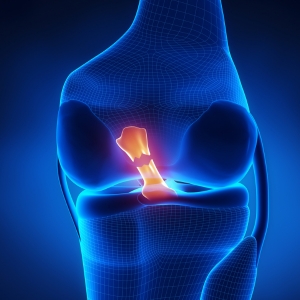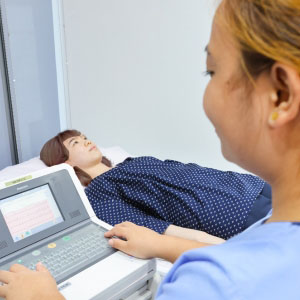Women’s Health Check Q&A
With the increasing trend of disease among younger women, regular health checks allow you to stay informed about your overall health and identify potential health issues early on when they may be easier to treat.
Common female health concerns may include:
- Menstrual disorders
- Breast diseases - such as breast lumps and breast cancer
- Gynaecological disorders and fertility issues - such as cervical cancer, endometrial abnormalities, ovarian cancer, ovarian cysts
Your healthcare provider can also give you guidance on preventive measures to stay healthy, such as having HPV vaccinations, maintaining a healthy weight, exercising regularly, and managing chronic conditions.
There are many kinds of women-specific health checks available in the market. This article answers common questions about women’s health checks - when, why, what and where?

When should you do a health check?
You should aim to get health checks and screenings done regularly, though the types of testing required and frequency will vary according to your age and risk profile.
General health check-ups can be done annually, with specific health checks such as gynaecological examinations recommended every two years.
When it comes to gynaecological health, women between the ages of 21 to 29 should consult a gynaecologist for health advice every two to three years. Setting healthy lifestyle goals early can provide a lifetime of benefits. There are many tests and examination items in a female health check, including breast ultrasound, Pap smear etc. During these appointments, your doctor can offer you advice on family planning and may conduct physical examinations including pelvic examination, to check for abnormalities such as endometriosis, uterine fibroid or ovarian cysts. This is also a good time to have a Pap test and to discuss Human papillomavirus vaccines (HPV) to protect you against cervical cancer, if not already received.
At the ages of 30 to 39, health check-ups should become annual. This enables healthcare providers to discuss lifestyle choices that promote wellness at a time when the benefits of forming healthy habits bring the most impact. These exams can help detect issues early, before they become more serious and set a baseline as you age and your body changes.
For women aged 40 and over, annual health check-ups are crucial to screen for diseases such as cancer, cardiovascular problems and chronic diseases, as the risk of these conditions increases significantly. It is recommended that women from this age group get regular breast checks, which may include mammograms or ultrasounds in addition to physical examinations conducted by your doctor.
With hormonal changes bringing a new set of challenges, your doctor can advise on changes pre, during and post menopause to help you understand and streamline the transition.

Why should you do health checks regularly?
There are many reasons why you should prioritise regular health checks. Firstly, early detection of any health issues can lead to more effective treatment and better outcomes. This is particularly important for conditions like cancer and heart disease, which can often be asymptomatic in their early stages.
Regular female body check up packages also provide an opportunity to discuss any concerns or questions, as well as receive guidance on healthy lifestyle choices and preventive measures.
If you are planning to become pregnant, regular women's health checks are especially important to ensure the health of both you and the baby.
Overall, prioritising regular health checks is an essential part of maintaining good health and well-being, and can help women lead longer, healthier, happier lives.
How to prepare for a health check?
- Make a note of your medical history, doctors need to understand genetric factors that may affect your health risks now and in the future
- Take along your identification documents, these are needed before tests can be performed
- Wear comfortable clothing that is easy to remove as you will need to change for some of the tests
- Check the information you received on booking, it should cover specific details on whether you can eat prior to tests and how much you need to drink. There should also be guidance on the best time in your menstrual cycle for mammograms and pap tests, and the preparation needed.

What should you discuss with the doctor during health checks?
There are many things that you can discuss with your doctor during regular health checks.
Below are some examples for your reference:
- Screening for various diseases and conditions, such as breast cancer, cervical cancer, osteoporosis and sexually transmitted infections
- Recommendations for maintaining a healthy weight through exercise and healthy eating habits
- Guidance on managing chronic conditions, such as diabetes, hypertension, and asthma
- Discussion of mental health concerns, such as depression, anxiety, and stress
- Education on safe sex practices and birth control options
- Wellness advice, such as stress-management techniques, smoking cessation, and alcohol moderation
- Immunisation recommendations, such as the HPV vaccine, flu shot, and tetanus vaccine
- Menopause, what to expect and how to minimise the effects
- Family medical history, as this affects your health risk factor
By discussing these and other preventive measures, you can stay informed about your health and well-being, and take steps to prevent health issues.
Where should I find Women’s Health Check Programmes?
There are many body check packages that you can opt for, however, not all programmes are suitable for you and some health checks test may not necessarily be repeated so frequently. It is always good to make an informed decision before confirming which programme is right for you.
Recommended health check plans
Matilda provides a series of Women’s health check programmes suitable for ladies of different ages in two service locations.

Matilda Medical Centre, Central :
Well Women Lite:
For women under 40, who have fewer risk factors for disease. This screening gives a good overview of health status.
Well Women:
For women over 40 years of age, in addition to essential investigations, the programme also includes advice on women’s issues, such as family planning and a mammogram.
Well Women Plus:
Ideal for ladies over 50, including comprehensive imaging scans, a mammogram and advice on menopause and other women’s issues.

The Health Assessment Department, the Peak :
The Well Women Premium:
This programme is the most comprehensive health check programme for women aged 40 years or above. In addition to the items listed in all other women’s health check programmes, it also includes a bone DEXA scan and tumour markers specific for specific cancers. This programme takes place at the Health Assessment Department in the Peak exclusively with a private room and full breakfast.
Our team assists patients in choosing the best-fit women's helth check and the doctors will recommend additional items when necessary, based on medical and family history.
For details of our female body check up package, please visit:
https://www.matilda.org/en/health-wellness/health-assessment-packages/well-woman-premium
or contact our Health Assessment Department at 2849 0338.
Articles on this website are informative only and not intended to be a substitute for professional medical advice, diagnosis or treatment. They should not be relied upon for specific medical advice.

Information provided by:
Dr. HO Chung Lam, Karen, General Practitioner, Matilda Medical Centre





